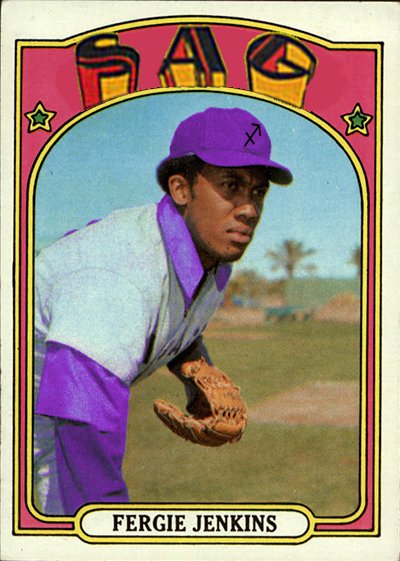1970 Fantasy Astrology Recap
View the 1970 FABL Lineups Here!
While I was building the Fantasy Astrology Lineups for 1970, I could tell that we were heading for a battle between Aries and Leo, just like we saw in 1971. What I didn’t expect is that the Rams and the Lions were fighting for second place, since Sagittarius burst into the lead in the Fire Division! Thanks mostly to their legendary battery of Fergie Jenkins (3,132 / 78.3), the top overall point scorer in ’70, and Johnny Bench (2,672 / 16.9), the real-life National League MVP, the Archers scored the second-most fantasy points of any sign in 1970. At the top, we have another disputed finish, but whereas 1971 saw two Fire signs duking it out for the number one spot, 1970’s race was between two Earth signs.
The Virgo Flowers had a dominating pitching staff, with two legitimate aces. Of the two, Gaylord Perry (3,017 / 73.6) had a more impressive career track record: more than 46,552 fantasy points, two Cy Young Awards, and a Hall of Fame enshrinement. But in 1970, no one but the legendary Tom Seaver (3,094 / 83.6) pitched better than Cleveland lefty Sam McDowell (3,082 / 79.0)… despite a career fantasy point total (22,294) less than half that of G. Perry’s. Incidentally, both Seaver and Gaylord’s brother Jim Perry (2,709 / 67.7) pitched for Scorpio, who won the Water division, despite Cancer’s league-leading offensive attack. J. Perry won the real-life AL CYA, while sign-mate Bob Gibson (3,047 / 89.6) won the NL’s version of the award, meaning the Scorpions had two 3,000-point pitchers and two Cy Young winners, but spread out over three players!
Virgo’s pitching excellence extended to the bullpen, where Twins setup man Stan Williams (1,828 / 26.9) was the top relief pitcher in the Negative Polarity. Yes, you read that right: Williams had just 15 saves, compared to 34 by Ron Perranoski (1,890 / 28.2), an Aries, and the only pitcher with more than 25% of Minnesota’s save opportunities. The positional eligibility issues start after Williams, as both Luke Walker (1,627 / 38.7) and Barry Lersch (1,241 / 29.5) each had more than 10 starts: 15 (out of 31 total appearances) and 11 (out of 42), respectively. Without the fantasy points of those two, Taurus jumps into the lead, with a pitching staff led by Mike Cuellar (2,775 / 69.4), one of four 20-game winners on the World Champion Orioles.
Offensively, each of these Earth signs had superstars to spare. Virgo alone had four 2,000-point scorers: real-life Braves teammates Orlando Cepeda (2,237 / 15.1) and Rico Carty (2,202 / 16.2), four-time Negative Polarity MVP Joe Morgan (2,060 / 14.3), and slugging catcher Dick Dietz (2,086 / 14.1) – and they would have had a fifth if Frank Robinson (1,880 / 14.2) had played a full season. Meanwhile, the Bulls had a power-and-defense third base tandem of Tony Perez (2,689 / 17.0) and Brooks Robinson (1,866 / 11.8), a surprising breakout from Cubs 1B/OF Jim Hickman (2,403 / 16.1), and of course one of the top legends in all of sports history, Willie Mays (1,953 / 14.1).
To round out the rest of the awards winners, I had two players share the Positive Polarity MVP award, since Gemini Billy Williams (2,980 / 18.5) and Leo Carl Yastrzemski (2,913 / 18.1) were so close together (and both agonizingly close to 3,000 points). Meanwhile Bobby Bonds (2,739 / 17.4) takes home the Negative Polarity MVP, slotting in as the Pisces leadoff hitter. Libra won the Air division, but didn’t have any awards winners, with Sagittarius closer LIndy McDaniel (2,178 / 35.1) scoring the most points among relief pitchers, and the Rookies of the Year going to Billy Grabarkewitz (1,985 / 12.7) for Capricorn, and Wayne Simpson (1,752 / 67.4), another Sagittarian.



